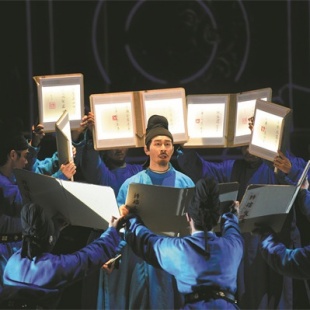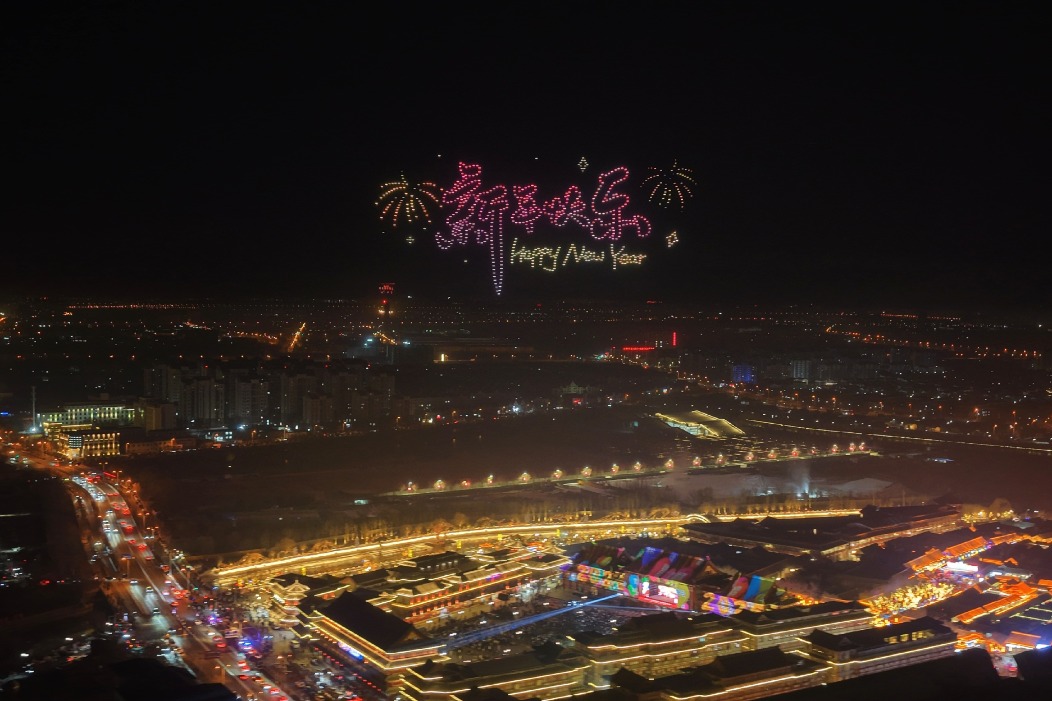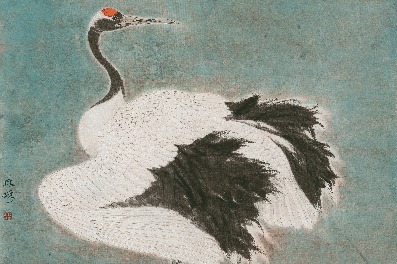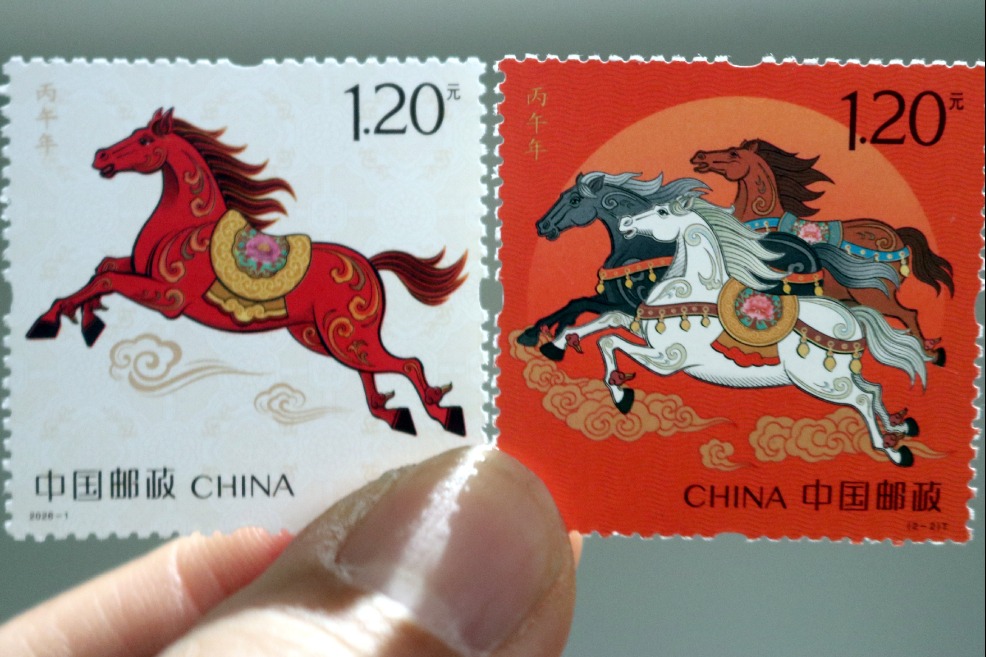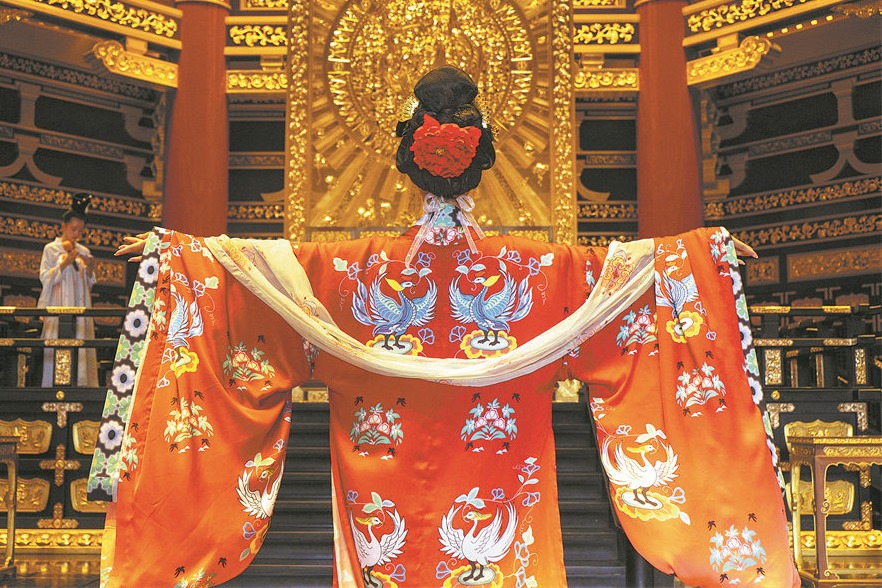A life that speaks for many

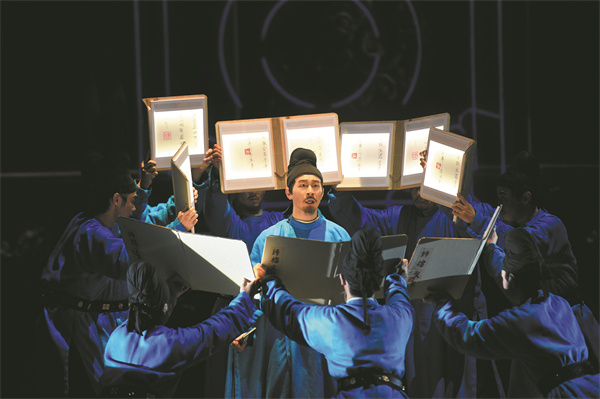
Play based on ancient story with character battling severe odds resonates with modern audiences facing their own challenges, Wang Xin reports.
What would you do if you are forced into a nearly impossible task? To quit or go all out, that is the question for Li Shande in The Litchi Road, a play adapted from Ma Boyong's popular eponymous novel that premiered on May 22 at Theatre Above in Shanghai.
The play tells of the nearly impossible mission unexpectedly assigned to a low-ranking official named Li Shande in the Tang Dynasty (618-907). Designated as a "Lychee Ambassador", he had to transport fresh litchi fruits, which spoil quickly, over thousands of miles from Lingnan in South China to the Tang capital Chang'an (now Xi'an, Shaanxi province) within a very short time and under harsh conditions. Lingnan refers to areas in Guangdong, Hainan provinces, the Guangxi Zhuang autonomous region, and Hong Kong and Macao special administrative regions.
The original novel is a semi-fictional creation based on true stories in Chinese history. In the Tang Dynasty, Emperor Xuanzong's favorite consort Yang Yuhuan (Yang Guifei) had a penchant for litchi fruits, which grow in faraway southern China and easily decay during transportation. To satisfy Yang's desire, the emperor dispatched military messengers to transport the fruits from southern China to Chang'an. The story became widely known along with a Chinese poem criticizing their luxurious lifestyle: "A steed rides through the dust, which pleases the imperial consort. No one knows it is the arrival of fresh litchi fruits on time."
Against the backdrop of the actual history and with Li as a fictional character, the novel sheds light on society and officialdom in the ancient dynasty, reflecting challenges in the modern world at the same time.
The original book, published in 2022, has also been adapted into a film and a TV series, both of which will hit screens later this year. Compared with the other two adaptations, the play takes a unique approach in presentation and expression, featuring more vibrant body movements and a special stage design using LED tube lighting to better connect to the modern world, said Li Mengze, director of the play, at a meeting on May 21 in Shanghai.


